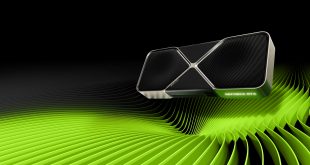Unigine provides an interesting way to test hardware. It can be easily adapted to various projects due to its elaborated software design and flexible toolset. A lot of their customers claim that they have never seen such extremely-effective code, which is so easy to understand.
Heaven Benchmark is a DirectX 11 GPU benchmark based on advanced Unigine engine from Unigine Corp. It reveals the enchanting magic of floating islands with a tiny village hidden in the cloudy skies. Interactive mode provides emerging experience of exploring the intricate world of steampunk.
Efficient and well-architected framework makes Unigine highly scalable:
- Multiple API (DirectX 9 / DirectX 10 / DirectX 11 / OpenGL) render
- Cross-platform: MS Windows (XP, Vista, Windows 7) / Linux
- Full support of 32bit and 64bit systems
- Multicore CPU support
- Little / big endian support (ready for game consoles)
- Powerful C++ API
- Comprehensive performance profiling system
- Flexible XML-based data structures
We use the following settings: 1920×1080 resolution. Anti Aliasing off. Anisotrophy 4, Tessellation normal. Shaders High. Stereo 3D disabled. API: Direct X 11.
The R7970 Lightning is only 2 frames per second slower than Nvidia's GTX590, showing the benefits of the highly overclocked state.
 KitGuru KitGuru.net – Tech News | Hardware News | Hardware Reviews | IOS | Mobile | Gaming | Graphics Cards
KitGuru KitGuru.net – Tech News | Hardware News | Hardware Reviews | IOS | Mobile | Gaming | Graphics Cards





Lovely, very nice, and yet again very expensive……… we can only dream!
Wow… so thats £500 for a card with no copper used as a cooling material, and Aluminum used instead,
thats a less ductile material = an inferior cooling solution, using a cheapr material for more money…
MSI really know how to impress – or charge more for using cheaper materials!!!
Good point from muppett, copper might have improved on the results by 1-2 c more.
however, the end result is great as the testing shows.
@muppet:
Actually the Cooler material is copper, but it’s nickel coated, so it doesn’t corrode (very, VERY easy with copper)
Only the fin array is made of Aluminium
I take it 12.3 drivers were used for this test and the other custom 7970’s?